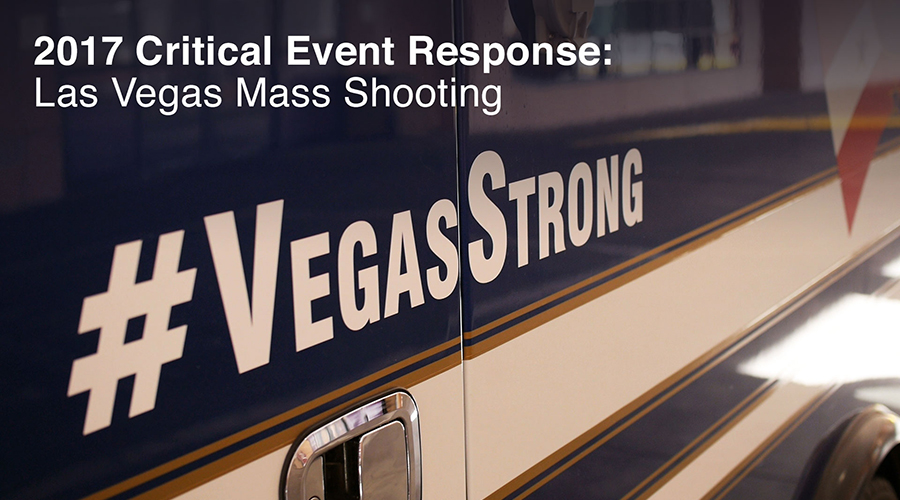By Miles Snowden, MD, Chief Medical Officer
In choosing hospital and facility-based medicine, we have chosen to be responsible for the highest acuity of healthcare needs. More often than not, for patients and families, high-acuity care is delivered by unfamiliar clinicians at unexpected times and in foreign facilities. Practicing this type of medicine well—one patient at a time—is remarkably difficult. Practicing this type of medicine well for an entire community affected by a high-impact event is a noble challenge indeed.
In 2017, TeamHealth responded to such community challenges several times. Our teams responded to Hurricane Harvey in Houston; Hurricane Irma in Florida; the tragic mass shooting in Las Vegas; the Atlas Peak wildfire in northern California; and Hurricane Maria in Puerto Rico.
Today, with our ever-larger footprint, it is increasingly likely that any U.S. natural disaster or mass casualty event will involve one of our TeamHealth communities. Are you ready?
What have we learned from our response to these 2017 events? How do we assure we are each ready when our turn comes? What does it take to respond to an extraordinary community critical event with extraordinary medicine?
During the 2018 National Medical Leadership Conference (NMLC), TeamHealth clinical leaders heard firsthand what it takes to respond to an extraordinary community event with extraordinary medicine. We learned from the experiences of three teams as they recounted how they responded to critical events in their communities.
On October 1, 2017, a gunman on a high floor of a Las Vegas hotel rained a rapid-fire barrage on an outdoor concert festival, where 58 people died and hundreds were injured. Nearly 200 patients were treated at Sunrise Hospital and Medical Center, where TeamHealth provides emergency medicine and hospital medicine services. This video shares the perspectives of the clinicians who treated patients at Sunrise Hospital and Medical Center that night.
During NMLC, Dr. Robby Frantz, President, West Group, facilitated a panel discussion regarding the Las Vegas mass shooting. Dr. Scott Scherr, Integrated RMD for Sunrise Health System, and Dr. Clarence Dunagan, Emergency Medicine FMD for MountainView Hospital, discussed how best practices saved lives that night.
- Know and understand your facility’s mass casualty incident (MCI) response plan. Take MCI training and table-top exercises seriously. Add to the scope of these trainings to include resources like technology, for example.
- Know and understand how your facility’s computerized processes can help or hinder during a time of crisis.
- During crisis, quickly establish communication with colleagues to share information and staffing needs.
- Be prepared to expand the footprint of your facility by discharging patients and/or transporting patients to other areas.
- Use altered standards of care and improvise processes to care for each patient.
- Conduct mental health well checks on your own team immediately after the event, and check in six to eight months with each team member later as well.
Additionally, TeamHealth recently worked with HealthStream to publish the e-book, “Harvey, Irma and Las Vegas: Lessons Learned from the Leaders Who Were There.” My hope is that these resources help all of us be better prepared for such events when our time comes.
It is also important to recall that many of our colleagues were personally, not only professionally, impacted by these critical events. Many colleagues lost utilities, autos, homes and other personal property. It is just as important we plan for the personal impact as the professional challenges of disaster and mass casualty events. After all, we can’t take care of others without also taking care of our own.
Thank you to all our clinical and non-clinical teams and your ability to lead and provide care in the most trying of times.
To learn more about a team that supports you and will be there for you on your best and worst days, connect with us. We care about you—clinicians who care for patients—and aim to provide resources you need, both professionally and personally.
